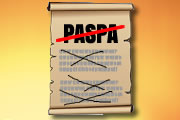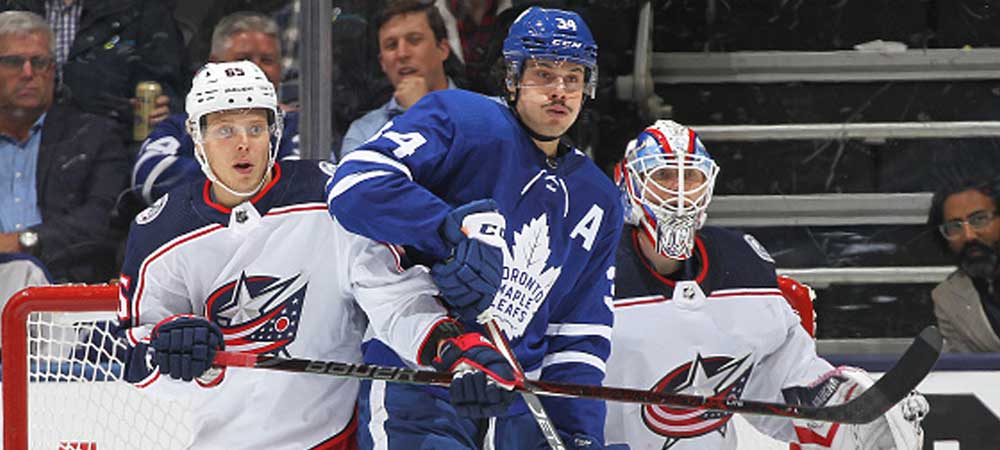 Let’s get one thing out of the way first: professional hockey in and of itself is not big business in Mississippi, to say the least.
Let’s get one thing out of the way first: professional hockey in and of itself is not big business in Mississippi, to say the least.
It is awfully hard for a sport predicated on having ice to catch on in the state with what is perhaps the muggiest year-round weather in the nation, and pretty much everywhere south of the Mason-Dixon Line is solidly entrenched in football country as far as individual sports affinities go. Even so, when the head man with one of the United States’ four major pro sports leagues talks, even folks down South should pay attention. After all, the decisions made by businesses as big as the National Hockey League have the potential to cause some substantial ripples all over the place even if the sport itself doesn’t exactly make waves everywhere.
Speaking to reporters at a press conference following the Vegas Golden Knights’ 6-4 win over the Washington Capitals in Game 1 of the Stanley Cup Finals on the evening of Tuesday, May 29, NHL Commissioner Gary Bettman expressed a view that his organization was not necessarily in opposition to either federal sports betting legislation or so-called “integrity fees.” No, what the NHL wants more than anything in the wake of the momentous May 14 decision by the US Supreme Court to overturn the Professional and Amateur Sports Protection Act of 1992 (PASPA), is a level playing field regarding regulation for sports wagering. Bettman told the media reps gathered for the big game that what is needed most in a post-PASPA world where each state can chart its own course in terms of what sports betting activities they want to allow or disallow is an idea of what to expect.
“We’re looking for consistency…whether that can be done federally, which would make it easier to make sure the rules of the game, the types of bets that are being placed, how things are being conducted, we’d like consistency and we’d like not to have [regulations] vary state-by-state,” Bettman said at the press conference. “Now, if all the states want to come together and do the same thing, that would be the equivalent of federal legislation and that’s something that we’re focused on.”
As for the integrity fee (basically a 1 percent skim off the top of all handle taken in by the nation’s newly minted sportsbooks) asked for by the combined lobbying arm of the National Basketball Association and Major League Baseball (and lately the US PGA Tour as well), the NHL is pretty much on board with getting a cut of the action. It’s just that the league is not exactly adamant that such a fee should be called by a name that conjures up associations of questionable integrity. Apparently flush with confidence in the incorruptibility of the NHL’s players, Bettman said he doesn’t “buy the term ‘integrity fee” even though he ain’t against sportsbooks paying out a percentage of their handle (and 1 percent of handle amounts to 20 percent of adjusted gross revenues).
“I don’t worry about the integrity of our players,” he said. “I think though, if [sportsbook operators] are going to allocate for [themselves] to run a business on [the pro sports leagues’] intellectual property…and the platform that we put on for our games, we’re entitled to be involved in that.”
Just so we are clear, when slick businessman types like Bettman use terminology like “intellectual property” in reference their line of work what they mean are the players themselves, whose performances as well as the events in which they compete, are technically owned by the leagues. Just something to think about going forward, particularly when we stop to ponder if the players themselves will ever catch a sniff of integrity fees, whether they end up being called that or known by some other title.
At any rate, Mississippi avoided the pitfalls of other states – namely Indiana, where integrity fees were first entered into the sports betting debate after the leagues’ lobbying efforts made their presence known in early 2018 – by passing its own form of sports betting legalization more than a year prior. Instead of a highly publicized national fight brewing between the states and business that aligned their interests with New Jersey’s fight against PASPA and those that sided with the pro sports leagues, Las Vegas insiders and “think of the children” types of anti-gambling groups (a motley assortment if there ever was one), Mississippi got the job done quietly. Magnolia State lawmakers passed a revised version of the law regulating and protecting Daily Fantasy Sports (DFS) in Mississippi that removed the state’s own ban on sports betting, opening the door for casinos in Biloxi, Tunica and elsewhere to open sportsbooks in the event of a PASPA repeal.
The real upshot of Mississippi’s route to legalizing sports betting inside its state lines is that lawmakers in the Hospitality State never had to battle the leagues over demands for payouts like these integrity fees, or even exclusive data rights like they collective asked for. Bettman remained fairly bullish about the monetization possibilities afforded by data exclusivity, particularly with regards to player and puck tracking data that sportsbooks all around the country would, presumably, want to get directly from the source when tabulating odds and writing betting lines.
That is to say that there is probably not much that Mississippi sportsbooks could do about it if the leagues won on the data licensing front, but the absence of any concession to the leagues vis a vis an integrity fee could theoretically make the Hospitality State one of the most hospitable market for sportsbook operators in the whole country. Only West Virginia stuck it to the leagues in a more comprehensive manner – passing an integrity fee-free sports betting regulatory bill over the head of even its own governor via a veto-proof majority in both houses of the state legislature.
While it might be that sports betting in Mississippi could end up in some small way depending on player and puck data from the NHL, the damage likely won’t be too great as hockey is, as we said earlier, far from the most popular or the most bet-on sport in the South. However, the wildly unexpected success of the Vegas Golden Knights in their debut season could put Nevada’s sportsbooks out of pocket to the tune of between $10 million and $12 million makes a strong case for the national interest that pro hockey is at least capable of generating.
Whatever the end result might be in the halls of Congress or in statehouses around the country, the NHL’s stance on federal or state level legislation regulating sports betting might have some bearing in many other states that are still straddling the fence on the matter. Even so, the Magnolia State at large, and sports betting in Mississippi in particular, look to be skating on smooth ice for the time being.

